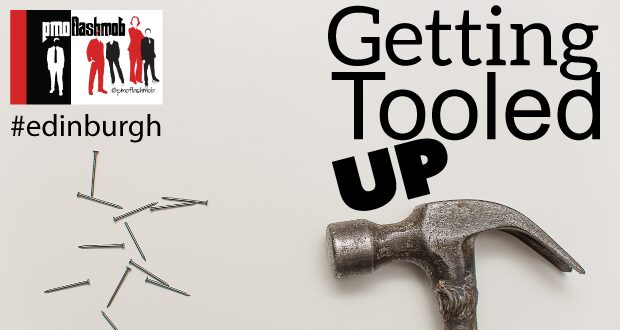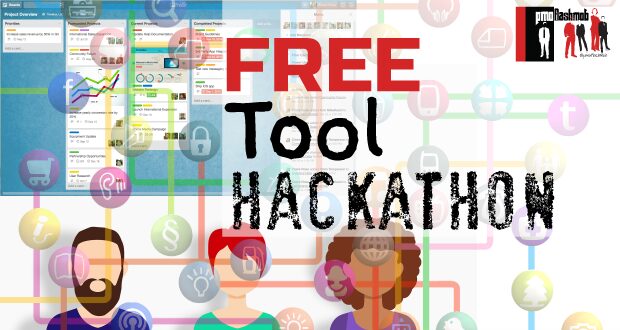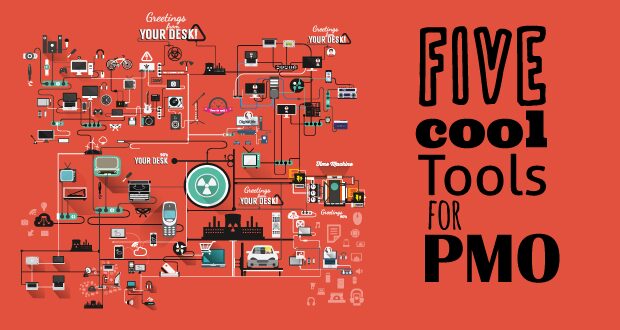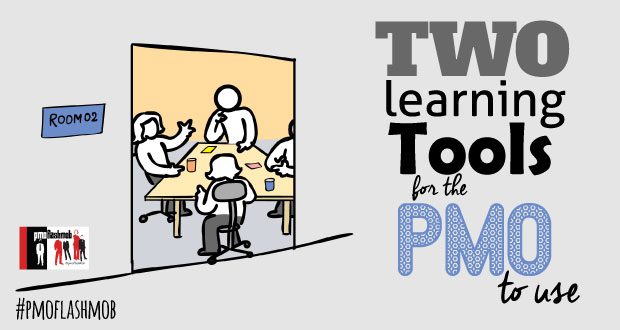Go to article

A few weeks back it was the PMO Flashmob in Edinburgh and the session was all about PPM tools. The session was held at Sainsbury's Bank -thanks to Maggie McGreary for hosting it - and thank you to Nicole Reilly for letting us (hopefully) learn from her experience when it comes to the PMO gaining a brand spanking new PPM tool.
These sessions about tools can be either deathly boring or a sales pitch - but we found a third way. A practical session on what to think about and plan when it comes to you and your organisation implementing a PPM tool. This is the PMO's view - from someone who has worked in many PMOs and has done many PPM tool implementations.
The honest questions to be asked and answered gives you a big insight into this session:
Go to article

I went to the recent PMO Flashmob Hackathon. For those of you that aren’t familiar with the concept of a Hackathon, it’s an event where programmers get together to write (or “hack”) some computer code over an extended period (hence “-athon”, from the ending of “marathon”) to solve problems posed by the attendees.
PMO Flashmob decided to hold one of these, with a PMO focus. I was initially somewhat wary. I have done a bit of programming in my time (Fortran, Java and VBA if you’re interested) but most of that is quite a while ago now (I did say some of it was Fortran), and I was concerned at the little I would be able to “bring to the table” for a hackathon. A week or so before the event, a post came out from host John Mcintyre saying the PMO hackathon would have a less technical focus than typical for traditional hackathons, so I took the plunge and signed up.
But we had been asked to come up with a suggestion for something to work on. So what to suggest?
I have seen much discussion heated debate on the web on the merits of Project Portfolio Management (PPM) tools vs. Spreadsheets, including this comment from PMO Flashmobber Nicole Reilly “Part of my initial discussions with a potential client will be to assess their openness to using [...] the ever-increasing number low-cost or even free tools now out there”. This prompted me to wonder:
What useful PPM functionality can be implemented using just free (or nearly free) tools?
Go to article

Every so often there's a time when I think, that's a really useful cool tool. Then I talk to some of the people at PMO Flashmob - or online in social media groups and they also recommend their stuff too. So I thought, let's share them on here - and hopefully you'll add something that you use in the comments section below.
Here's my recent finds:
Dropbox Paper
Thanks to Donnie M for this one - we've been working on a collaboration and needed to write a document together. He suggested Dropbox Paper - and it really is cool.
So you're working on a document together - it's web-based and you can do all the usual word processing stuff - adding links, formatting, just plain good old typing. So far so good.
The cool stuff happens when you can see each other writing at the same time - or just watching what the other person is putting on there.
It just works - there's no chance of overwriting each others stuff and it's just easy to get going and use it. Plus you can export whenever you're ready.
Why I think it's a good tool for PMO? It's definitely something your project teams can use if you don't already have any kind of collaboration software in place - in fact the whole team can use it at once.
Go to article
Access the video presentation from The PMO Mini-Masterclass on PMO Tooling – Tricks, Tips and Things to Consider which took place in Edinburgh.
This video is 58 minutes long.
The session was carried out at Sainsbury's Bank by Maggie McGeary and Nicole Reilly
Go to article
Our portfolios typically contain strategic and business delivery portfolio items, which are initiated through top down imperatives or BAU work.
However, how do we deal with ideas from the bottom up? How do we set idea challenges and nurture ideation? How do we capture and develop the good idea? Does that need to be part of the portfolio management and what part does the ‘PMO’ play in creating the environment for, and perhaps managing that process?
Takeaways:
Understanding what is involved to embrace innovation within your organisation
Awareness of what benefits bottom up innovation can deliver
An appreciation of the part technology can play and advice on getting an initiative off the ground
Go to article
This research-based presentation addresses the role of the PMO in the combination of governance as structure and governmentality as human agency for success at the project and organizational level.
Three stages are discussed: 1) the enablers of governance and governmentality; 2) the practices in terms of different governmentality approaches, governance paradigms and mechanisms, and project sovereignty; and 3) the consequences of and for governance and governmentality in terms of project results, ethical issues in projects, and the alignment of the organization to their particular context.
Real life cases will be discussed and tools for assessment and profiling of governance and governmentality approaches will be presented.
Takeaways:
The role of the PMO in establishing organizational enablers and practices for governance and governmentality
The link between governance approaches and its consequences
Tools for PMOs to assess and profile their own organization
Go to article

Earlier this year we held our first session on "learning lessons from projects" in a PMO Mini-Masterclass held in Central London (you can take a look at the whole session here). The session looked at ways the PMO can get involved in that process we call "lessons learnt" (yet we all seem to dislike that phrase!).
A framework was introduced, some advice on facilitation and some different types of workshop tools or techniques that can be used.
That inspired one PMO Flashmobber - Jeremy Lesourd, Process Programme Manager from De La Rue - to put pen to paper and share a couple more tools which he uses in his work.
Here's Jeremy with more insights:
I wanted to share a couple of tools that I use for learning following meetings, workshops and projects.
These are 'Mad, Glad, Sad (the quick one…) and the 'Feedback Value Tree' (the long one!)
Go to article
The challenges for PMOs to support the delivery of real change are getting harder. The PMO needs to react by developing a continuous improvement framework.
That goal can be achieved by applying lessons learned in a more concrete way. The presentation suggests 3 powerful ways to apply lessons learned and examines each in some depth.
The reactive technique of applying lessons learned is supplemented by a high level overview of 3 proactive techniques. Together these provide a ‘toolbox’ for a learning PMO.
Takeaways:
A framework for continuous improvement
Reactive improvement: how to turn ‘lessons learned’ into ‘lessons applied’
Proactive improvement techniques
The Video
Go to article
How to do the right things, in the right way, in the right order, with the right team.
Delivering Successful PMOs: A Greenfield PMO will reveal how a clear framework to conceive, design, build, prove and embody an enterprise PMO inside an organisation, dealing with the strategic intentions, the politics, the people and the projects.
This is not just theory or perfect world modelling, this is proven practice from where the speaker, Ray Mead, has, through his P3M Consultancy, p3m global, built enterprise PMOs for major organisations from the ground up - Greenfield PMOs.
Takeaways:
Practice tips and tools that can be applied to current and planned PMOs.
Exposure to a clear proven methodology for building and running a successful PMO.
An honest and pragmatic assessment of what does and doesn’t work in establishing PMO.
The Video
Go to article
